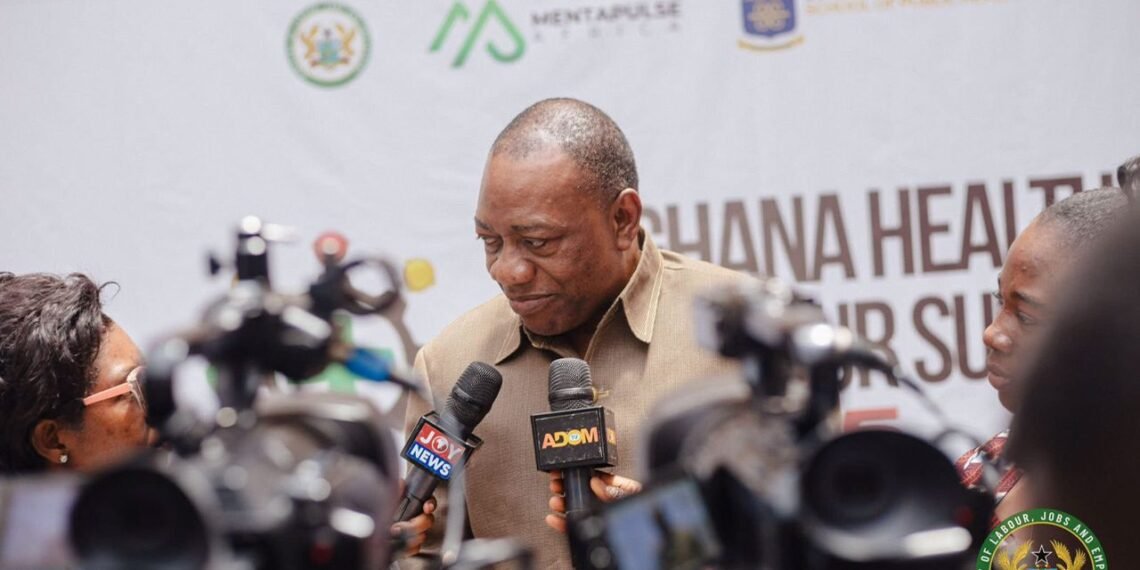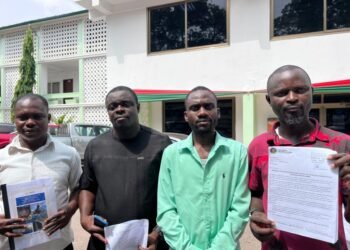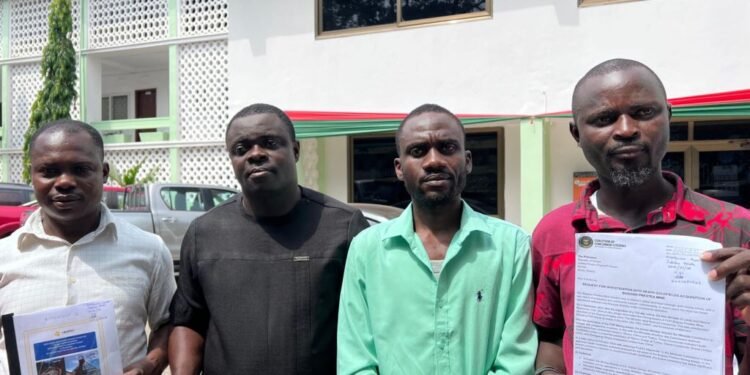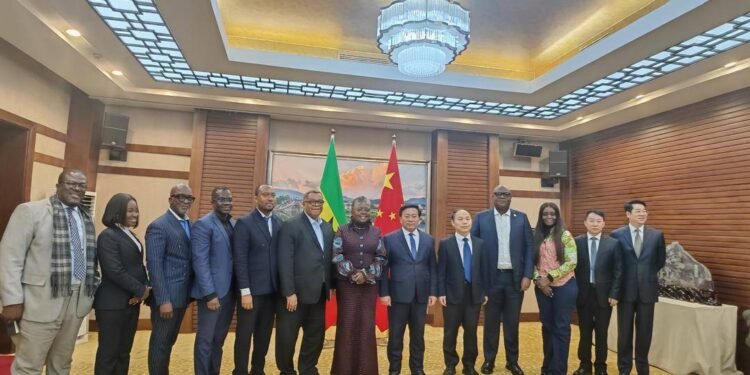The Minister for Labour, Jobs and Employment, Hon. Dr. Abdul-Rashid Hassan Pelpuo in a bid to strengthen accountability, gender inclusion, and ethical reporting in Africa’s extractive industries, has issued a clarion call for transformative action.
Speaking at the launch of the Africa Extractives Media Fellowship (AEMF) in Accra, Hon. Pelpuo emphasized on the critical role of the media in shaping the narrative around natural resource governance.
“Every story about extractives is ultimately a story about people, workers, job seekers, and families whose lives depend on these industries.”
Hon. Dr. Abdul-Rashid Hassan Pelpuo
The Minister in his submission urged journalists to uphold principles of accuracy, fairness, and balance in their reporting.
Inclusive and Sustainable Growth
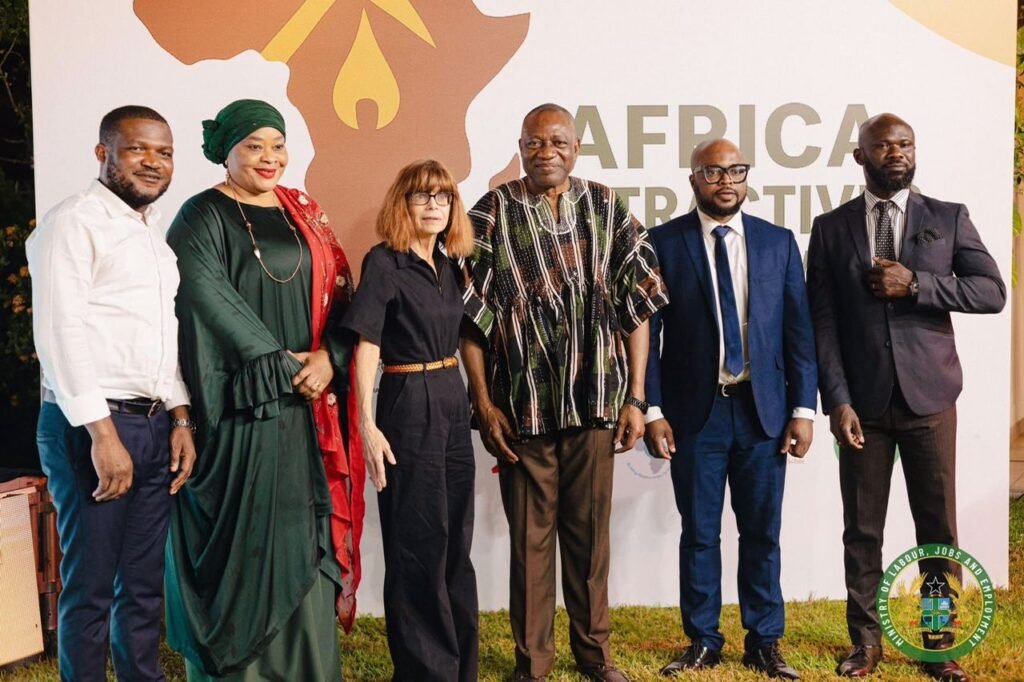
Dr. Pelpuo’s message resonated with the gathering, as he stressed the importance of responsible reporting in driving inclusive and sustainable growth across Africa’s extractive sector.
“Responsible reporting is central to ensuring that our extractive resources serve the interests of all Ghanaians, men and women, present and future generations.”
Hon. Dr. Abdul-Rashid Hassan Pelpuo
Africa’s extractive sector has long been a complex and contentious arena, with the continent possessing a wealth of natural resources that have the potential to transform the lives of millions of its population.
However, the sector has also been plagued by issues such as opaque governance, environmental degradation particularly the illegal mining, and unequal distribution of benefits. Dr. Pelpuo’s call for ethical journalism and responsible governance aims to address these persistent challenges and unlock the true potential of the extractive industry for the betterment of African population.
Accountability and Transparency
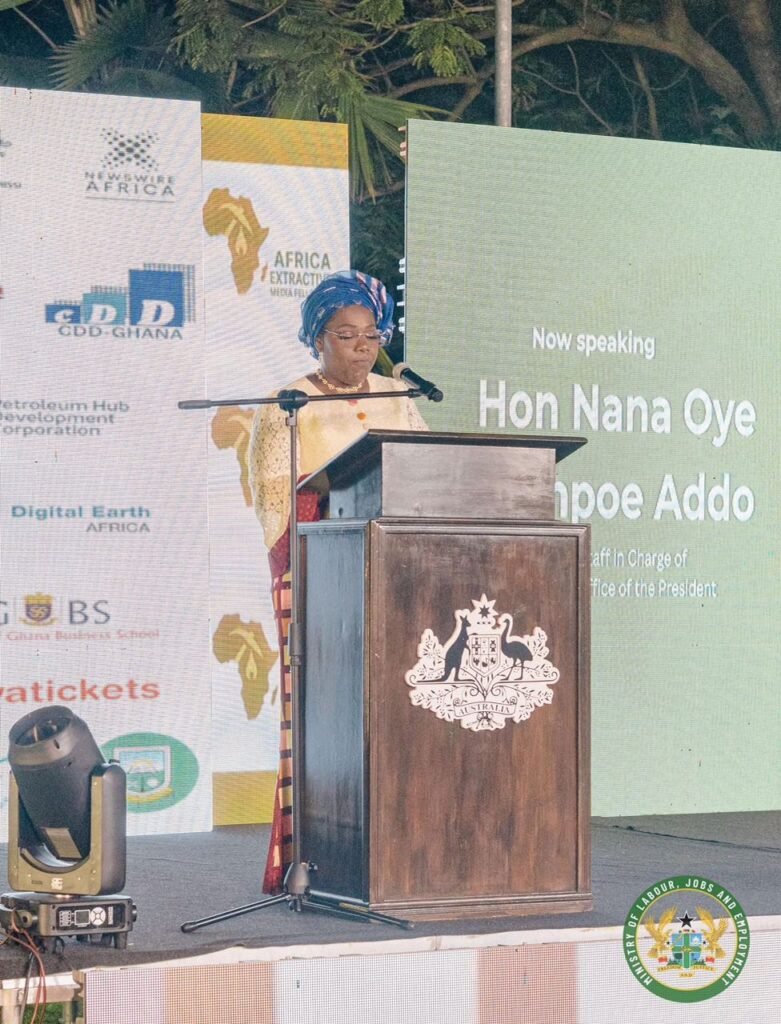
At the heart of the Minister’s message is the need for stronger accountability and transparency in the extractive sector.
By empowering journalists to report accurately and ethically, the government seeks to foster a culture of responsible governance, where the management and distribution of natural resources are scrutinized and held to the highest standards.
The Africa Extractives Media Fellowship (AEMF), which the Minister was launching, represents a significant step in this direction.
The program aims to nurture a new generation of African journalists equipped with the skills and knowledge to shape the continent’s extractive narrative with courage, accuracy, and empathy.
Hon. Nana Oye Bampoe Addo, the Deputy Chief of Staff representing the Presidency, also stressed on the relevance of ethical journalism.
“The fellowship’s focus on transparency, inclusion, and youth empowerment is vital to Ghana’s democratic growth and sustainable future.”
Hon. Nana Oye Bampoe Addo
Integral to the Minister’s vision is the need for greater gender inclusion and representation in the extractive sector.
Partnerships and Collaboration
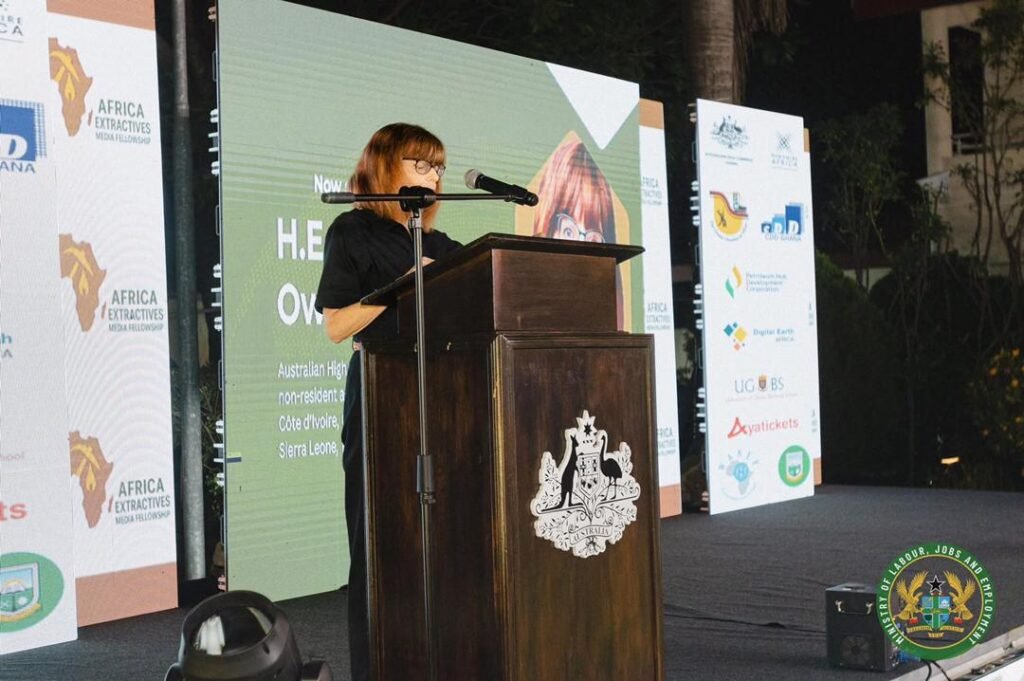
The launch of the AEMF also highlighted the importance of international collaboration in addressing the challenges confronting Africa’s extractive sector.
The Australian High Commissioner to Ghana, Her Excellency Berenice Owen-Jones, reaffirmed Australia’s commitment to supporting initiatives that advance responsible journalism and gender equality.
“A responsive and inclusive media does more than inform, it holds power to account and fosters peace through understanding.”
Her Excellency Berenice Owen-Jones
Sustainable Future
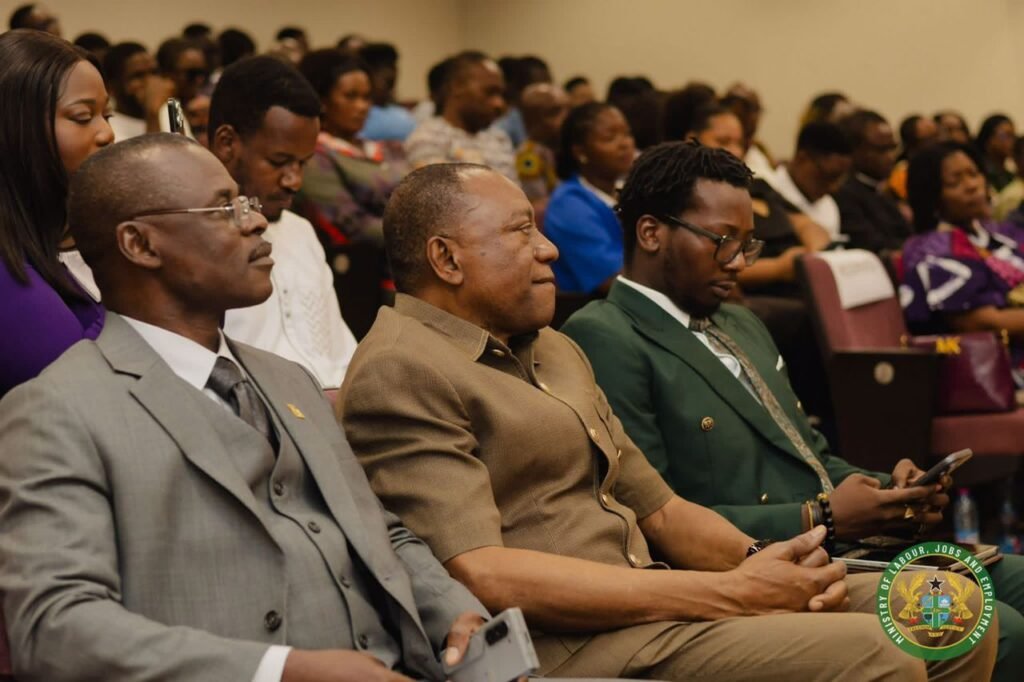
The Minister’s call for ethical journalism and responsible governance in the extractive sector reflects the government’s broader vision for Ghana and Africa.
By empowering the media to hold the industry accountable and amplifying diverse voices, the government aims to ensure that the benefits of natural resource extraction are equitably distributed and contribute to the long-term sustainable development of the continent.
As the Africa Extractives Media Fellowship embarks on its mission to nurture a new generation of journalists, the Minister’s message represents a clarion call for transformative change in the way Africa’s extractive sector is reported, governed, and experienced by its people.
This collaborative effort between the government, the media, and international partners holds the promise of a more transparent, inclusive, and prosperous future for Africa’s extractive industries.
READ ALSO : Adu-Boahene’s ₵49 Million Trial: Supreme Court Dismisses Bid to Remove Trial Judge

